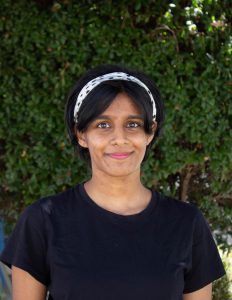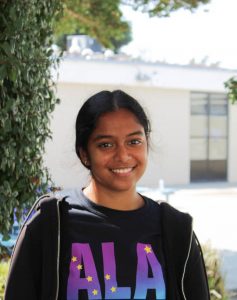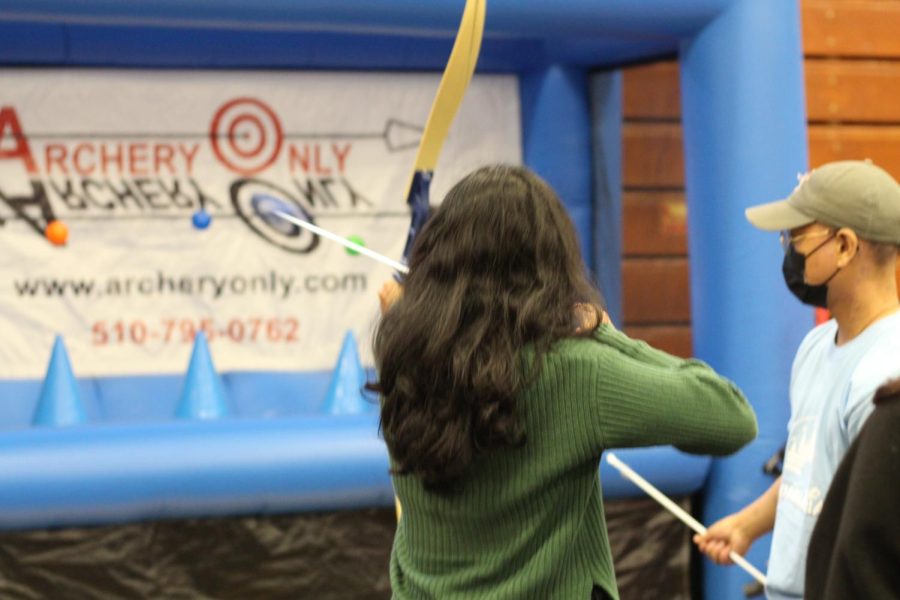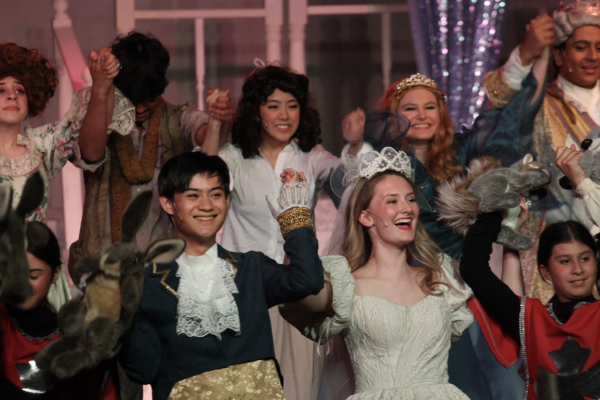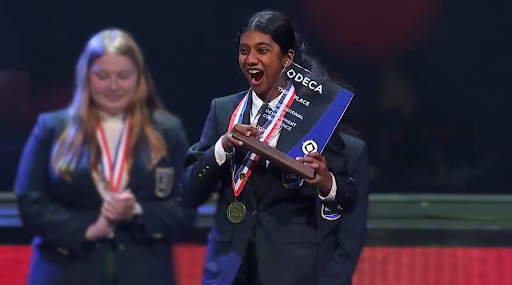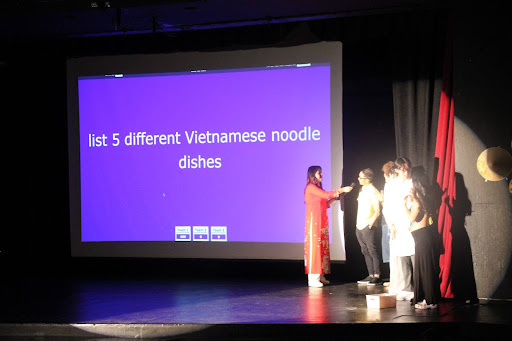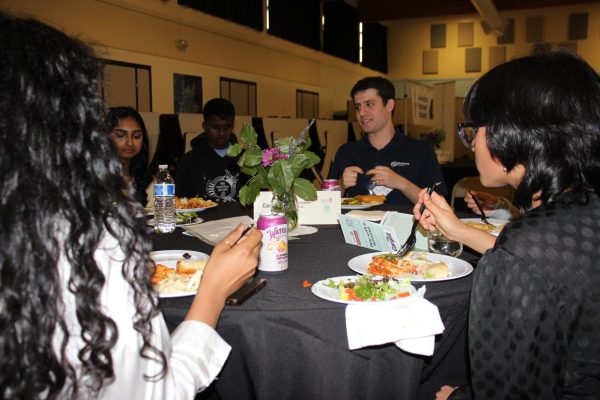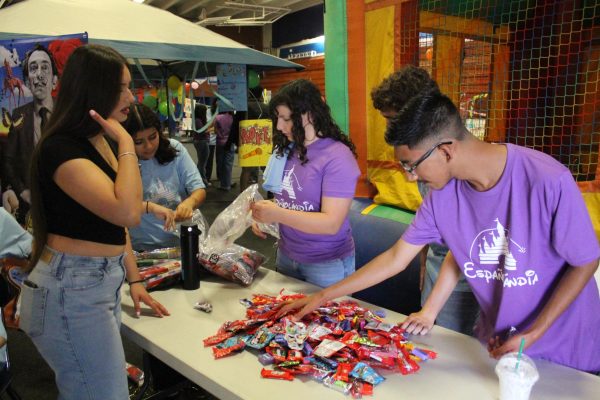Españolandia BTS: A Passport to Culture and Fun
On Monday, April 4th, Mr. Ballado, Spanish 4 classes, and MEChA hosted Irvington’s highly anticipated Spanish-speaking cultural event: Espanolañdia. The plastic wedding rings, the intense Vero Mango lollipops, and the colorful confetti adorning the gym marked the return of this event, entertaining students and staff alike. As a showcase of Latin American heritage, culture, music, and tradition, Espanolañdia served as a formative experience for all Spanish learning students.
To execute an event of such grandeur and scale, Mr. Ballado’s Spanish 4 classes started preparing and conceiving ideas at the beginning of February. Students were split into groups to create their own booth and related Spanish activities for other students to participate in. Some booth ideas became new additions to the event, including fencing and archery, which were all planned under a budget.
“While it was really cool to bring out the foils and suits for the fencing gear, unfortunately, our budget was not that high,” stated Spanish 4 student Ananya Thota (11). “We used pool noodles to allow people to battle each other.” Applying their ingenuity to best plan activities from limited resources, students successfully put up an array of cultural booths, featuring cumbia dancing, geography, Mexican food, and lotería, a traditional game of chance similar to bingo.
In addition, booths passing out candy or reusing materials for multiple students had to follow special COVID precautions.
“We had to keep our food booths outside and sanitizing was also a concern because a lot of activities, like our archery booth, were hands-on,” said Spanish 4 student Jyothi Shankar (12). “Mr. Ballado was worried that the event could contribute to a COVID spread, so he ensured each group had a plan for cleaning their materials.
The event itself was vibrant, immersive, and exposed students to Hispanic cultures. Spanish students attending the event were required to have “passports,” containing pages for stamps from each booth they visited. As they entered the gym, Españolandia “customs” checked passports and asked questions in Spanish to let people in. If anyone failed to answer or answered in English instead of Spanish, “security” locked them up—but not for long, of course.
Due to the time crunch of a regular day schedule, volunteers helped students complete all the activities, and experience as many booths as possible. Each booth was allowed a 20-minute break and lunch to relax from the energetic chaos that permeated the gym. The day prior to the event, students arrived at Irvington to set up and decorate the gym.
“We had to come to school at 8:00 am and stay until 11:00 am with all the other volunteers to lay the rugs on the gym floor and hang up the posters everywhere,” described Shankar. “Then, on the day of the event we had to come to school at 7:30 am to set up hand sanitizer stations and candy buckets. And then we had to stay after school until 4:00 p.m to clean up.”
This beloved Irvington tradition first began in 2008, and since then Espanolañdia strives to build upon its five core pillars.
“The first pillar of the event is that it has to be in Spanish, obviously. Second, it has to be cultural. Third, it has to be interactive. Fourth, it has to be educational, and fifth, it has to be fun. This year we added a sixth one which was to be COVID-safe,” explained Mr. Ballado. “Then, students develop and present their ideas to the class, incorporating each of the pillars.”
With over 100 student volunteers running the event, Espanolañdia could not have been possible without the help of Spanish classes, MEChA, and the P.E. department who graciously moved their activities out of the gym. While attendees learned immensely from the event, the students who were involved in planning also learned new aspects of Spanish culture.
“I definitely enjoyed researching my own booth, and learning from my classmates’ booths,” reflected Shankar. “Instead of just learning in a classroom, we were able to apply our Spanish knowledge to gain a deeper understanding of Mexican/Latin American history and heritage.” Such experiences made the event more valuable and enjoyable for all.
